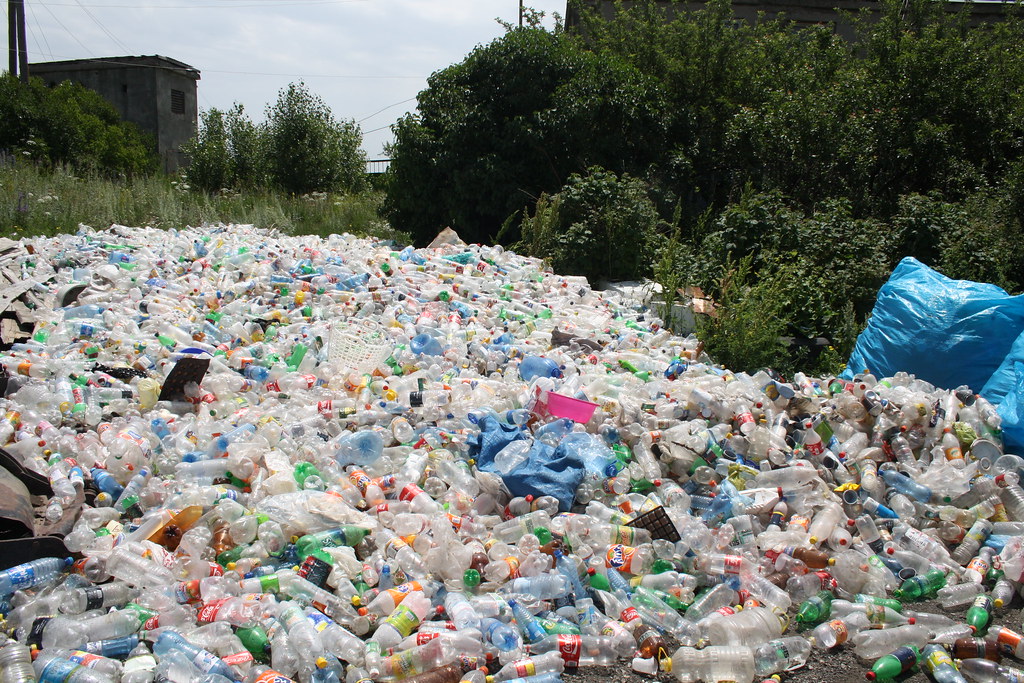Context:
A study by Switzerland based non-profit EA Earth Action predicts that a massive 220 million tonnes of plastic waste will be generated in 2024.
Key findings of the report
- It has shown a steady increase of nearly 10% (7.11%) since 2021.
- Only 12 countries are responsible for 60% of the world’s mismanaged plastic waste, with China, USA, India, Brazil, and Mexico leading the list.
- As per the Mismanagement Waste Index(MWI)three countries (followed by India) with the highest mismanaged waste — Mozambique (99.8 per cent), Nigeria (99.44 per cent) and Kenya (98.9 per cent) — belong to Africa, according to the document.
- The gap in waste management capacity and plastic consumption is called Mismanaged Waste Index (MWI).
- India ranks fourth in the MWI, with 98.55 per cent of generated waste being mismanaged and fares poorly in the management of plastics waste.
- This year’s report includes plastic waste from the textile industry and household waste, unlike the previous year’s analysis focused solely on plastic packaging waste.
- Nearly half of the world’s population since April 2024 has been living in areas where plastic waste generated has surpassed the capacity to manage it.
- Last year marked the inception of the first-ever ‘Global Plastic Overshoot Day,’ signifying the point at which global plastic waste production surpassed the world’s ability to handle it.
- Each country has its own Plastic Overshoot Day determined by the amount of plastic waste generated and the country’s capacity to manage it, with 117 days of plastic overshoot globally. EA Earth Action emphasizes the urgent need for science-driven, global policies to address the plastic pollution crisis, especially as negotiations for a UN Global Plastics Treaty approach in Ottawa.

Efforts to Combat Plastic Pollution
Global efforts:
- UN One Planet Coalition: Businesses, governments, and NGOs working to eliminate unnecessary single-use plastics and make all plastic packaging reusable, recyclable, or compostable by 2030.
- Basel Convention: Regulates international movement of plastic waste to minimize its environmental impact.
- Global Plastic Pollution Treaty (under negotiation): Aims to create a legally binding agreement to address plastic pollution throughout its lifecycle.
- Global Alliance on Waste: Promotes a holistic approach to waste management, including plastic, by minimizing waste generation and maximizing resource recovery.
- Global Tourism Plastics Initiative: Focuses on eliminating unnecessary single-use plastics within the tourism sector.
Indian efforts:
National Policy:
- Plastic Waste Management Amendment Rules, 2022: This policy prohibits the manufacture, import, and use of several single-use plastic items, aiming to reduce plastic waste generation at the source.
- Extended Producer Responsibility (EPR): This policy holds manufacturers responsible for collecting and processing their plastic products after their lifespan, creating a more sustainable waste management cycle.
- Project REPLAN: This initiative by Khadi and Village Industries Commission (KVIC) promotes sustainable alternatives like cloth bags to reduce plastic bag consumption.
- Nationwide Awareness Campaign: Launched on World Environment Day 2022, this campaign aims to educate citizens about the dangers of single-use plastics and empower them to report violations.
- The five R principle serves as a cornerstone for managing plastic waste, emphasizing the importance of Reduce, Reuse, Recycle, Recover, and Refuse.
State-Level Initiatives:
- Several states in the Himalayan region have implemented their own measures:
- Himachal Pradesh: Introduced a buy-back policy for single-use plastic waste in 2019, yet littering remains a challenge.
- Mizoram: Aizawl Municipal Corporation implemented bylaws to curb plastic use in 2019.
- Sikkim: Banned the use of packaged mineral water in 2022 and has a robust regulatory system in place. However, proper waste management infrastructure remains a hurdle.
- Tripura: Implemented policy changes, municipal bylaws, and a task force to eliminate single-use plastic, but the effectiveness needs evaluation.
Plastic Overshoot Day
- Plastic Overshoot Day marks the date when humanity’s annual plastic waste generation surpasses the Earth’s capacity to manage it sustainably through waste disposal or recycling.
- Global Plastic Overshoot Day 2024: Projected to be September 5th.
- Differing from the global date, India’s Plastic Overshoot Day for 2023 was on January 6th.
Significance:
- Highlights the unsustainable rate of plastic consumption and its environmental consequences.
- Serves as a reminder to address plastic pollution through reducing plastic use, improving waste management, and developing sustainable alternatives.

